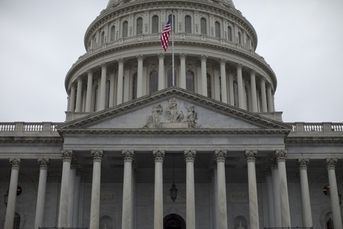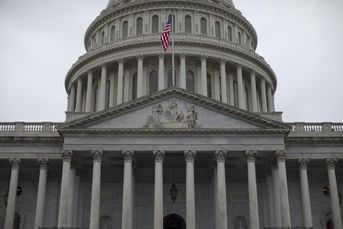Financial planning tax deduction? It’s a longshot
A lone adviser is quietly trying to get his idea — a tax deduction for money spent on financial planning services — onto lawmakers' radar. Right now, it's barely a blip.
When Congress returns from its summer recess in a few weeks, a legislative brawl may well erupt over whether to renew the Bush administration tax cuts that are set to expire at the end of the year.
But amid the din, Kirk Loury will quietly try to get his idea — a tax deduction for money spent on financial planning services — onto lawmakers’ radar.
In reality, it’s likely to remain a faint blip this fall. The journey from a policy notion to a bill — let alone one that is signed into law — can be a long slog.
“If it takes two years, we’re still better off,” said Mr. Loury, president of Wealth Planning Consulting Inc. in Princeton, N.J., and founder of the Alliance for a Full Financial Planning Tax Deduction. “I don’t know that I have in my own mind a particular deadline.”
Mr. Loury expresses the patience and equanimity of someone who is certain he has a good idea, which will gain currency.
He argues that one of the reasons the country suffered through the financial crisis is that too many people were reckless with their money — a situation that could have been ameliorated by wider use of financial planners. Avoiding the meltdown also would have prevented the government bailout of huge banks and corporations.
“We could have saved literally billions of dollars, if people had had the guidance of financial planning,” Mr. Loury said.
His proposal: to allow Americans to deduct the full cost of using a financial planner, much the same way that filers can deduct the cost of a tax accountant. Currently, only financial planning costs that exceed 2% of a taxpayer’s adjusted gross income can be deducted as part of “miscellaneous expenses.”
Mr. Loury stresses the similarities between a deduction for someone using a certified public account to file their taxes and one for using a financial planner to sort out other aspects of financial life.
“A financial planner can create sensibility out of complexity in financial and investment products in the same way that an accountant can with the tax code,” he said.
From his perch in New Jersey, Mr. Loury acknowledges that the Washington terrain can be mystifying. He is turning to groups like the Financial Planning Association and the Certified Financial Planner Board of Standards Inc. for help in navigating the capital.
“We’re just starting to take a look at it,” said Dan Barry, FPA managing director of government relations and public policy. “There’s pretty broad support among the financial planning community that this type of idea makes sense. We’re going to be looking at how we can move that effectively forward.”
The first order of business is to identify a champion on Capitol Hill.
“One of the key things is to find a member of Congress who takes the issue to heart and advances it through the process,” said Mr. Barry.
Mr. Loury has had what he characterizes as positive discussions with members of the New Jersey congressional delegation.
“There’s interest, but not enough time and attention,” he said.
Mr. Barry acknowledges that the financial planning tax deduction might be overshadowed by the debate over tax issues that will begin when Congress reconvenes.
One big hurdle: a financial planning deduction could increase the final price tag of a tax bill, albeit slightly. And these days, lawmakers want to avoid being seen as giving away revenue in times of trillion-dollar federal debt.
“It’s certainly a challenge to get something like that in [a bill] in this environment,” Mr. Barry said.
Learn more about reprints and licensing for this article.






